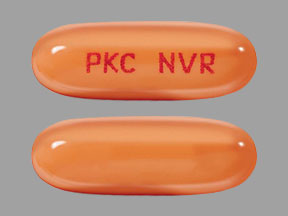Rydapt Interactions
There are 657 drugs known to interact with Rydapt (midostaurin), along with 2 disease interactions, and 1 alcohol/food interaction. Of the total drug interactions, 143 are major, 509 are moderate, and 5 are minor.
- View all 657 medications that may interact with Rydapt
- View Rydapt alcohol/food interactions (1)
- View Rydapt disease interactions (2)
Most frequently checked interactions
View interaction reports for Rydapt (midostaurin) and the medicines listed below.
- acyclovir
- Afinitor (everolimus)
- allopurinol
- amiodarone
- amlodipine
- atorvastatin
- Entresto (sacubitril / valsartan)
- Farxiga (dapagliflozin)
- Gleevec (imatinib)
- Jadenu (deferasirox)
- Jakafi (ruxolitinib)
- Kisqali (ribociclib)
- levofloxacin
- levothyroxine
- magnesium oxide
- Mekinist (trametinib)
- metformin
- olanzapine
- ondansetron
- Ozempic (semaglutide)
- pantoprazole
- potassium chloride
- prochlorperazine
- Promacta (eltrombopag)
- promethazine
- Sandostatin (octreotide)
- spironolactone
- Tasigna (nilotinib)
- torsemide
- Tykerb (lapatinib)
Rydapt alcohol/food interactions
There is 1 alcohol/food interaction with Rydapt (midostaurin).
Rydapt disease interactions
There are 2 disease interactions with Rydapt (midostaurin) which include:
More about Rydapt (midostaurin)
- Rydapt consumer information
- Compare alternatives
- Pricing & coupons
- Reviews (2)
- Drug images
- Side effects
- Dosage information
- During pregnancy
- Generic availability
- FDA approval history
- Drug class: multikinase inhibitors
- Breastfeeding
- En español
Related treatment guides
Drug Interaction Classification
| Highly clinically significant. Avoid combinations; the risk of the interaction outweighs the benefit. | |
| Moderately clinically significant. Usually avoid combinations; use it only under special circumstances. | |
| Minimally clinically significant. Minimize risk; assess risk and consider an alternative drug, take steps to circumvent the interaction risk and/or institute a monitoring plan. | |
| No interaction information available. |
See also:
Prilosec
Prilosec (omeprazole) is used to treat symptoms of GERD and other conditions caused by excess ...
Prevacid
Prevacid is used to treat and prevent stomach and intestinal ulcers. Learn about side effects ...
Dupixent
Dupixent is used to treat eczema, eosinophilic or oral-corticosteroid-dependent asthma, chronic ...
Gleevec
Gleevec is targeted cancer therapy for specific types of leukemia (blood cancer), bone marrow ...
Gastrocrom
Gastrocrom is used for inflammatory bowel disease, systemic mastocytosis
Ayvakit
Ayvakit (avapritinib) is a prescription medicine used for the treatment of gastrointestinal stromal ...
Avapritinib
Avapritinib is used for gastrointestinal stromal tumor, systemic mastocytosis
Cromolyn
Cromolyn is used for asthma, maintenance, inflammatory bowel disease, systemic mastocytosis
Further information
Always consult your healthcare provider to ensure the information displayed on this page applies to your personal circumstances.


